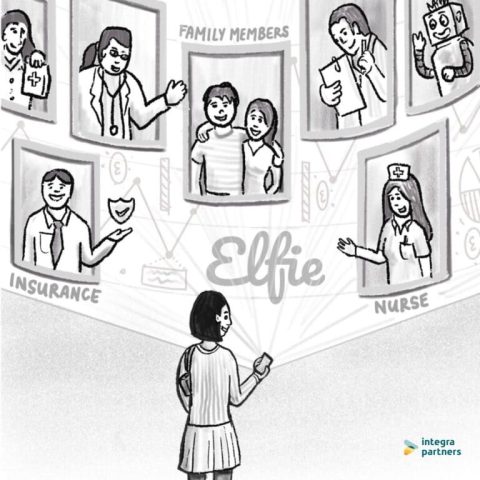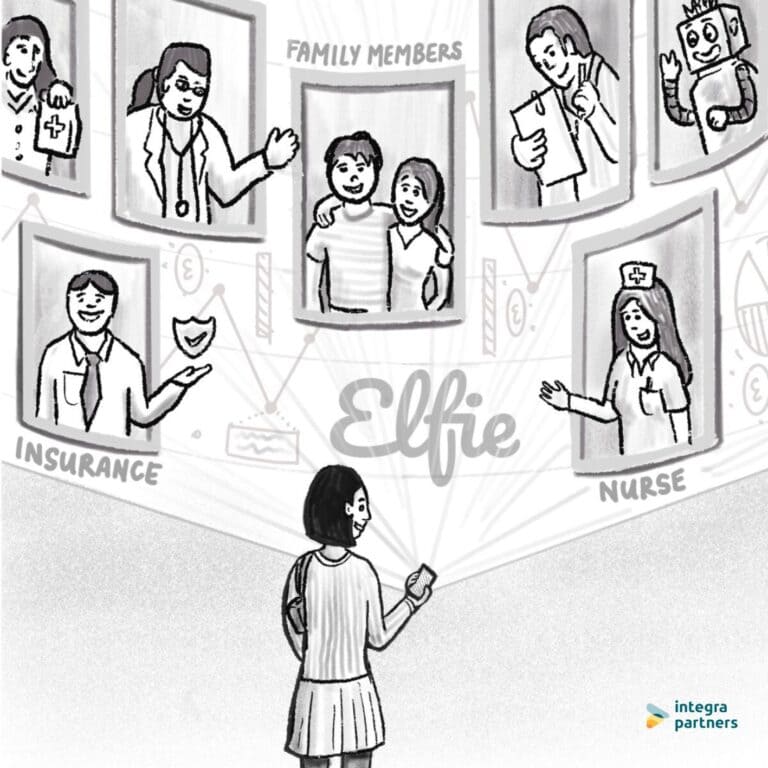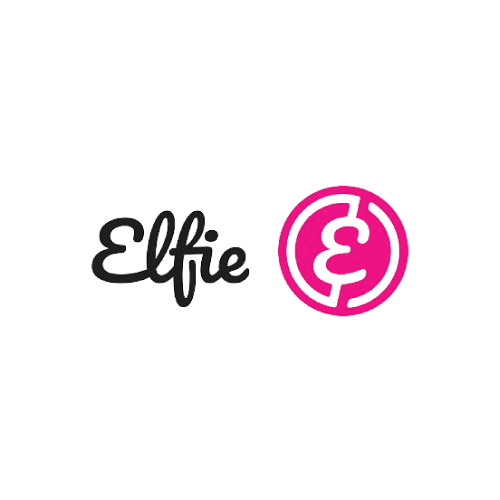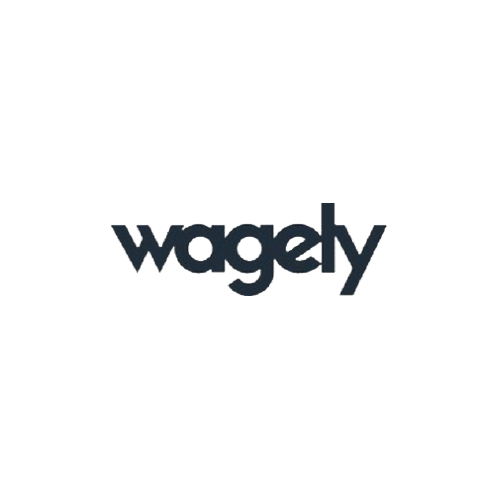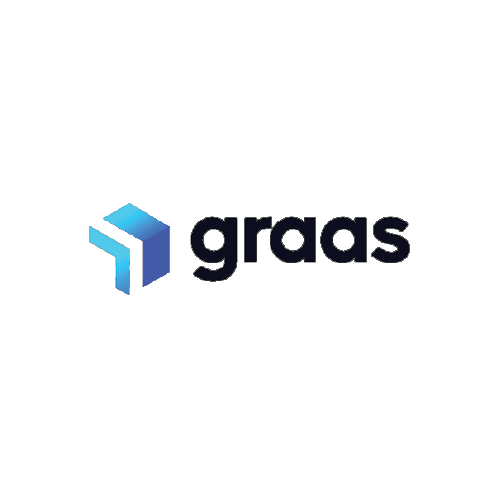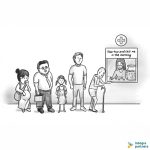
Why We Invested: NalaGenetics and ending the tyranny of the “average”
19 April, 2022
Leave no plastic behind: creating a true circular economy
3 July, 2023The future of chronic care management: a healthcare revolution
23 May, 2023
In an era where nearly every good or service can be bought or experienced with a digital transaction, it seems reasonable that more of our healthcare will be available through our mobile devices. One market that stands out in terms of size of opportunity, ability for technology to make a meaningful difference, and complexity, is the management of chronic diseases.
Today, 1 in 2 adults have at least one chronic condition, and 1 in 3 adults suffer from two or more chronic conditions. Of the total $9 trillion in annual global healthcare spend, over 50% is spent on chronic conditions. In the United States, 90% of the $4.1 trillion in healthcare spend is directed towards patients with chronic conditions¹.
Long thought of as “rich country diseases”, chronic conditions like heart disease and stroke, cancers, chronic respiratory diseases, diabetes, obesity, and arthritis are increasingly prevalent in emerging markets. As a result, medical inflation (the annual increase in the cost of providing healthcare) in emerging markets generally, and Southeast Asia specifically, far outpaces GDP growth. This means that healthcare costs rapidly eat up the national budget of entire countries. For example, 2022 medical inflation in the Philippines was 14.36%, compared to GDP growth of 7.6%².
Most chronic conditions are preventable, and major risk factors contributing to increased prevalence are known: cigarette smoking, physical inactivity, excessive alcohol use, and stress. Despite this, the prevalence of chronic conditions continues to grow, placing an ever increasing burden on patients and healthcare systems.
Patients with chronic conditions directly and indirectly navigate a complex ecosystem that includes the patient and their families, primary care physicians, specialists, pharmacists, social workers, policy makers, clinic and hospital systems, pharmaceutical companies, a set of analog and digital medical device providers, employers, national government programs and typically a combination of national, individual and corporate healthcare schemes. For patients with more than one chronic condition, this complexity involved in navigating this ecosystem increases rapidly.
Supporting patients when they are not in the hospital is still a major blindspot. For example, monitoring a patient’s blood pressure when they are not in the doctor’s office, and to what extent is that linked to the adherence (or lack thereof) to prescribed medications? Can technology be used to predict a patient’s need for acute care, and can virtual programmes increase a patient’s adherence to prescribed medications or desired changes in lifestyle? Can patients be incentivized to actively measure and monitor, and can primary care physicians and other care providers be convinced to incorporate patient engagement tools into the way they manage their doctor-patient relationship?
No such comprehensive tool exists today.
Technology is the obvious vector for change here, and the prize is the multibillion dollar global market for chronic care management.
Elfie
That is why we are proud to lead the Seed round of funding in Elfie, the first free app that rewards you for monitoring your health.
Elfie, founded in Vietnam, has a unique approach to its product and go-to market strategy, with breakout results so far. Since its founding, the company has demonstrated its ability to scale its users, engage and retain them, drive real positive health outcomes, and all without requiring a significant amount of capital to scale. Instead, Elfie has found ingenious ways to engage the multiple stakeholders to leverage their existing distribution channels, research capabilities, and other networks to embed the Elfie solution into the workflow of all major ecosystem participants. In addition, the company has been able to scale not only in its home market, but in far away and differentiated markets, such as Brazil and Turkey, and with plans to be in dozens of countries very soon.
Four factors distinguish Elfie from competitors:
First, Elfie is free for all users. This means that Elfie does not advertise anyone’s product or service, which would be the easiest and most obvious way to monetize a patient. Instead, Elfie has built a gamification engine for users that drives engagement, with early data showing orders of magnitude higher engagement rates compared to other mobile health apps.
Second, Elfie successfully solves for the multitude of stakeholders in the chronic care ecosystem, working with employers, insurers, government payors, pharmaceutical companies, and medical bodies to drive a flywheel of distribution, data gathering, and insights that can lead to higher quality of care and lower overall healthcare costs.
Third, Elfie offers patient engagement for multiple diseases, starting with Hypertension, Diabetes, Angina, and Dyslipidemia, and soon incorporating other conditions such as certain types of cancers.
Fourth, whilst Elfie is headquartered in Singapore with all product development and key management functions based in Ho Chi Minh, the product can be launched in any market with minimal adjustments.
Ofir Ejnes and Jean-Francois Legourd were friends with decades of experience as founders and operators in various technology companies in Southeast Asia prior to founding Elfie. Not coming from a healthcare industry background and willing to challenge convention, they came up with a product that puts the patient at heart, whilst leveraging other industry stakeholders to launch a powerhouse of growth and engagement. The key in the Elfie model is that whilst consumers are able to download the Elfie app at any time, and always for free, the business is at heart a B2B2C business, where the middle B are national health ministries, employers or their corporate health insurers, medical bodies, and pharmaceutical companies. This ensures all stakeholders are engaged, Elfie is a neutral provider not owned by any industry stakeholder, and growth is powered by existing channels, significantly reducing the cost to market.
You can read more about Elfie here and in this video here. We are excited to partner with Ofir, Jean-Francois and the entire Elfie team as well as our co-investors FEBE Ventures, Hustle Fund, and Gentree Fund to drive a revolution in chronic care management.
Health and Economic Costs of Chronic Diseases | CDC
Willis Towers Watson, “2022 Global Medical Trends Survey Report”, S&P Global

